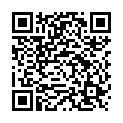|
|
|
| Module code: KIB-EMOB |
|
|
2V (2 hours per week) |
|
3 |
| Semester: 6 |
| Mandatory course: no |
Language of instruction:
German |
Assessment:
[still undocumented]
|
E2533 (P211-0211) Electrical Engineering and Information Technology, Bachelor, ASPO 01.10.2018
, optional course, technical
FT62 (P211-0211) Automotive Engineering, Bachelor, ASPO 01.04.2016
, semester 6, optional course, specialisation
FT62 (P211-0211) Automotive Engineering, Bachelor, ASPO 01.10.2019
, semester 6, optional course, specialisation, course inactive since 18.01.2024
KI617 Computer Science and Communication Systems, Bachelor, ASPO 01.10.2014
, semester 6, optional course, technical
KIB-EMOB (P211-0211) Computer Science and Communication Systems, Bachelor, ASPO 01.10.2021
, semester 6, optional course, technical
KIB-EMOB (P211-0211) Computer Science and Communication Systems, Bachelor, ASPO 01.10.2022
, semester 6, optional course, technical
PIBWI59 Applied Informatics, Bachelor, ASPO 01.10.2011
, semester 6, optional course, informatics specific
PIB-EMOB (P211-0211) Applied Informatics, Bachelor, ASPO 01.10.2022
, semester 4, optional course, informatics specific
|
30 class hours (= 22.5 clock hours) over a 15-week period.
The total student study time is 90 hours (equivalent to 3 ECTS credits).
There are therefore 67.5 hours available for class preparation and follow-up work and exam preparation.
|
Recommended prerequisites (modules):
None.
|
Recommended as prerequisite for:
|
Module coordinator:
Prof. Dr. Horst Wieker |
Lecturer: Prof. Dr. Horst Wieker
[updated 10.11.2016]
|
Learning outcomes:
After successfully completing this module, students will understand new and adapted vehicle systems and be able to describe different market requirements against the background of market trends. They will be able to characterize the functional structure of the systems and their interfaces and identify solutions to typical problems.
[updated 26.02.2018]
|
Module content:
This course will focus on trends, technology and system networking in and outside of vehicles.
The electrification of the automobile occupies a strong position in the global market. The transition from the combustion engine to pure electric driving have led to a wide range of new systems and information networks in vehicles.
This course will deal with the following questions:
* What are the main differences between a vehicle with an internal combustion engine and a hybrid or electric car and what effects do these differences have on the function development?
* How do electronic systems and networks work in an electric car?
* Are there special functional requirements for assistance systems in electric vehicles?
* What do the data networks look like in the future vehicles and what requirements do they have to meet?
1. General information on market trends and their technical requirements
* User behavior
* Political influences
2. General technical principles
* Gasoline engines
* Diesel engines
* Hybrid vehicles
* Electric vehicles
3. The architecture of electric vehicles
* Drive systems
* Chassis & safety systems
* Vehicle cabin systems
* High-voltage architectures
4. Driver assistance systems
* Overview of functionalities and networks
* Limits of driver assistance systems
5. Communication systems inside and outside vehicles
* ITS and electric vehicles
* Data networks
6. Functional safety
* General requirements for security and privacy
* Redundancies
* Requirements for assistance and security systems
* Road vehicles - Functional safety ISO 26262
[updated 26.02.2018]
|
Recommended or required reading:
[still undocumented]
|
Module offered in:
SS 2024,
SS 2023,
SS 2022,
WS 2021/22,
WS 2020/21
|


